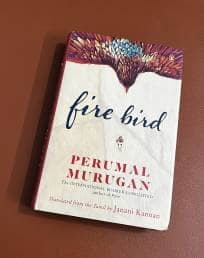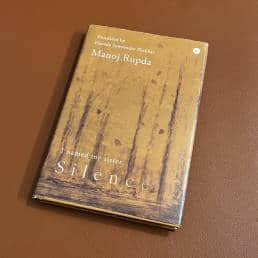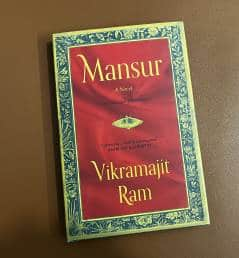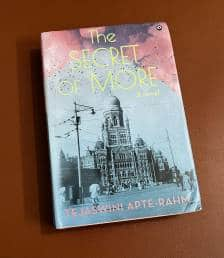



On Friday, the JCB Prize for Literature announced its shortlist of five. Comprising three translations — from Bengali, Hindi, and Tamil, a debut novel, and three writers who either have or are making multiple appearances on the prize’s shortlist, the 2023 Shortlist is no less than a heady literary cocktail that will definitely, as the prize claims, “help readers across the world discover the very best of contemporary Indian literature.” Here are the shortlisted works:
Fire Bird (Hamish Hamilton, an imprint of Penguin Random House, 2023) by Perumal Murugan, translated from the Tamil by Janani Kannan

Perumal Murugan is the author of the International Booker-longlisted Pyre, which was translated from the Tamil by Aniruddhan Vasudevan. Translations of his works — two by Vasudevan, sequels of his immensely successful which was marred by controversies One Part Woman, A Lonely Harvest and Trial; and one by N Kalyan Raman, Poonachi or the Story of a Black Goat — have graced the JCB shortlists previously.
With Muthu’s story in Kannan’s translation, he panders to readers of ideas big and small. While those looking for nuance may have a lot to cherish in this book, ones who enjoy a familial story won’t be disappointed too. But at the heart of this novel are human emotions. Principally hurt, arriving out of an array of disturbances and dislikes. And the role it plays in giving one a distinct character. Sample text which reflects this observation: “The joy from bonding is but meagre. The sorrow from severing a relationship aches deep within.”
I Named My Sister Silence (Eka, an imprint of Westland, 2023) by Manoj Rupda, translated from the Hindi by Hansda Sowvendra Shekhar

While Murugan’s novel deep dives into world-building, in Sowvendra Shekhar’s translation of Rupda’s Kaale Adhyaay, one is faced with the toppling of morals. The sheer delight — if it can be called that as the novel is really grim and dark — of reading this work is that the text is unburdened by the weight its carefully selected words carry. To give an example, what would be the thoughts of a 10-year-old who witnesses a giant elephant being eaten away by wild dogs, and while he makes it safely to his home, he doesn’t feel a thing and in fact has discovered his “Other”, animal self? Pretty enough to jolt one out of their reverie that “all’s well” when forests are plundered for corporate profit-making, this is a slim novel that packs a punch and is an extremely crucial addition to the Adivasi literature canon.
Mansur (Picador, an imprint of Pan Macmillan, 2022) by Vikramajit Ram

The jury has described this book as a “triumph of minimalist storytelling.” Its sentences shine with “a gem-like clarity.” Set in the Mughal era, it “reimagines a day in the life of an imperial Mughal atelier”. And in particular of Mansur, an artist known for his precision, who has been commissioned a work that must reach its rightful owner and in all its secrecy. However, a noteworthy delay makes it clear that it can be suspected that it’s no longer a secret. What must Mansur do in this case? That’s the driving force of this yet another slim but powerful work of historical fiction.
The Nemesis (Eka, an imprint of Westland, 2023) by Manoranjan Byapari, translated from the Bengali by V Ramaswamy

Byapari has made it to the JCB shortlist for the third time. Previously with Arunava Sinha’s translations of his works There’s Gunpowder in the Air (2019) and Imaan (2022) — both published by Eka, this time the second instalment of his Chandal Jibon trilogy translated by Ramaswamy, The Nemesis is decorating the list. A refugee on the move, much like Byapari in his youth, Jibon’s life in Calcutta is as eventful as it can get. East Pakistan is going to become an independent nation, Bangladesh. Dramatic twists and turns inform the Naxal movement. And amid all this here’s Jibon trying to make sense of life in an oppressive Brahmanical patriarchal world.
ALSO READ: Manoranjan Byapari: ‘I never set out to become a Dalit writer, it’s a label stamped on my work’
The Secret of More (Aleph, 2022) by Tejaswini Apte-Rahm

A city can be witnessed taking shape in this illustrious debut by Apte-Rahm. Its brilliance is not only in its scene-setting but also in the way the author plays with the sensory details that help readers place themselves in colonial Bombay where much like in the present everyone seems to be “selling things and hurrying somewhere”. With Tatya as its principal character, this tale sifts through the monumental changes the city experienced and with it the desires it helped create among people who looked at it as if it was a forbidden fruit but despite being so highly imaginative attempts at locating something real, truthful about life.
The winner(s) will be announced on November 18. Rs 25 lakh will be awarded to the author if it happens to be a work written in English originally. And if it’s a translated one, then the translator shall get an additional Rs 10 lakh. Last year’s prize-winning book was The Paradise of Food (Juggernaut, 2022) by Khalid Jawed, translated from the Urdu by Baran Farooqi.
Discover the latest Business News, Sensex, and Nifty updates. Obtain Personal Finance insights, tax queries, and expert opinions on Moneycontrol or download the Moneycontrol App to stay updated!